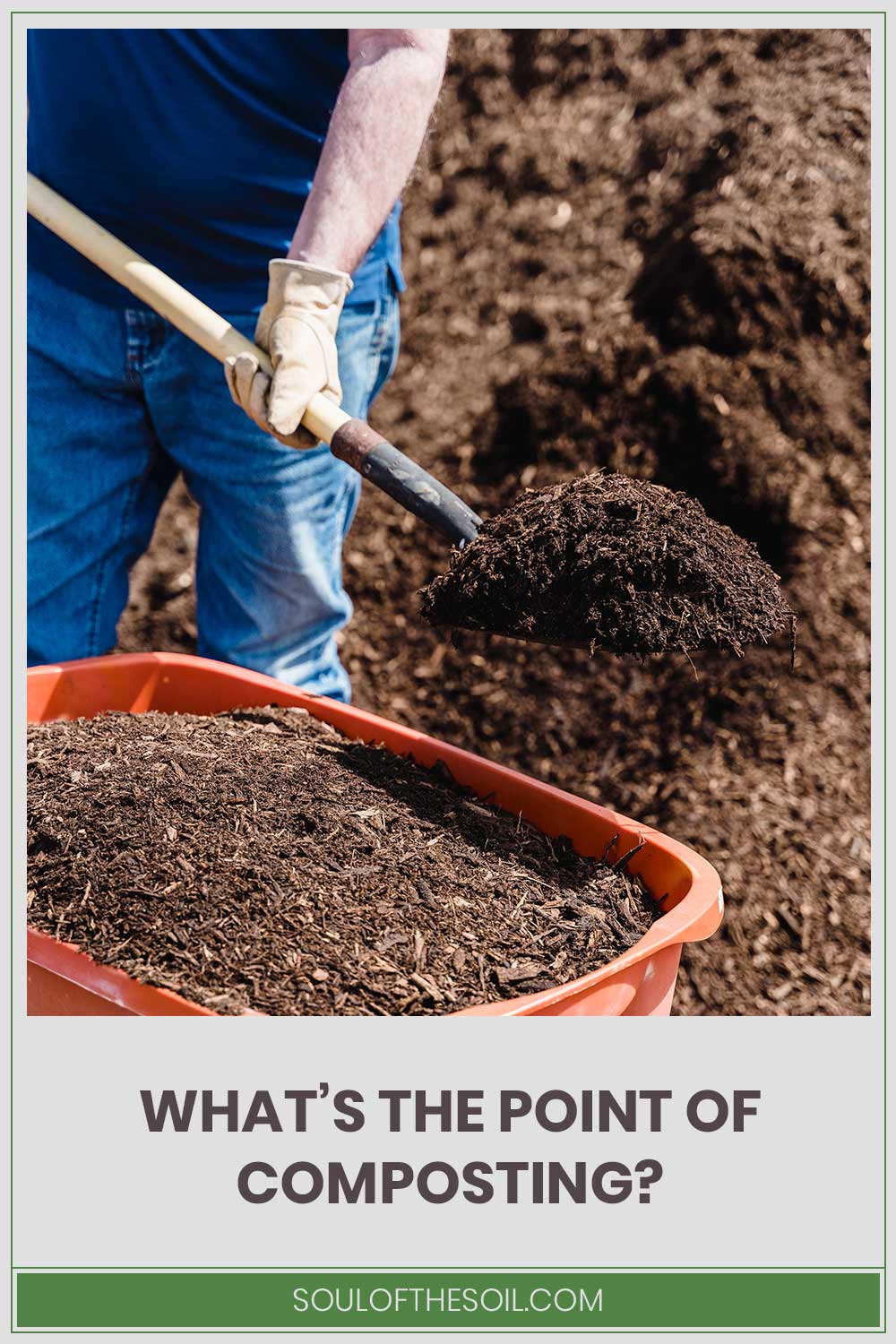What’s The Point Of Composting?
We may earn commissions for purchases made through links on our site. Learn more on our about us page.
Composting is the process of allowing organic materials to decompose naturally into a nutrient-rich soil amendment or mulch.
To put it simply, composting is an aerobic process that takes place in a controlled environment. The end result is compost, a crumbly, black material with an earthy odor.
Composting occurs when microorganisms use the materials added to the pile as food. The air they breathe and the food they eat supply them with the carbon and nitrogen they need to grow and reproduce.

What is the Point of Having Compost?
Composting is essential to organic farming and gardening and has numerous positive effects on the natural world. Composting is an age-old agricultural activity that most people get into to save money on organic matter for their gardens.
However, the benefits of composting extend far beyond the garden, encouraging even those who aren’t particularly fond of gardening to give it a try.
Is Compost Really Necessary?
Composting is not essential. However, it provides better, more natural nutrients for the soil in your garden. There are also other benefits to composting that you should consider that go in favor of composting being necessary for better gardening.
What are the Five Benefits of Composting?
There are plenty of benefits of composting, and here are just some of it:
Reduces Waste
Many believe that anything organic may simply be thrown into a landfill and decay there. Of course, this is the case, but the procedure moves at a snail’s pace. In addition, nutrients are lost during the decomposition of organic matter.
Recycles food and yard scraps
Up to 30% less garbage ends up in landfills because of composting. As a result, you’ll have less garbage lying around the house. As a result of waste reduction efforts, fewer garbage cans and fewer trash pickups will be required.
Nutrients To The Soil
Adding compost to soil improves its nutrient content by incorporating organic matter like carbon and nitrogen. Plants require these elements in order to expand and engage in photosynthesis. Composting also aids in water retention, which plants can need.
Introduces Organisms To The Soil
Bacteria, fungi, and protozoa are just a few examples of microorganisms that help break down dead plants and animals.
Microbes are also present in healthy soil and important for aerating the composting process, converting nitrogen to a useful form, and protecting plants from some illnesses.
Environmentally Friendly
Composting doesn’t cost anything, and it has significant environmental benefits. When you compost, you eliminate the need for synthetic fertilizers and chemicals.
Can you Mess up Composting?
Composting is very simple. You can make mistakes while composting, but nothing you can do will ruin the compost.
There are ways to fix and avoid such mistakes from happening. As long as you balance out your brown and green material and keep a decent moisture level, there isn’t too much that can go wrong.
Are There Any Negatives From Composting?
Composting has a few major drawbacks, including:
It Takes Time
Making your own high-quality compost takes at least three months to mature, depending on the size of your compost, the ambient temperatures, and the contents of your compost, in comparison to purchasing a bag of chemical fertilizer from a gardening retailer.
Takes Up Space and Creates Odor
A compost pile shouldn’t produce a strong odor if the dry-to-wet ratio is correct and no odorous products, such as meat, are added.
Nonetheless, it may still smell like rotting matter, especially when it’s hot outside. In addition, a separate location is required for composting as it can take up a lot of space.
It’s a Lot of Work
Getting started with composting and sorting through your food waste to find the components that can be composted does require some time and effort, but once you get going, the work is minimal.
Final Thoughts on What’s The Point Of Composting
As with anything, there are both benefits and negatives to composting. However, it appears to be worth it in the long run.
It can take a lot of time and requires some space, but it benefits your soil and the environment. In addition, composting is a very easy process, and very little can go wrong during the process.



Leave a Reply
You must be logged in to post a comment.